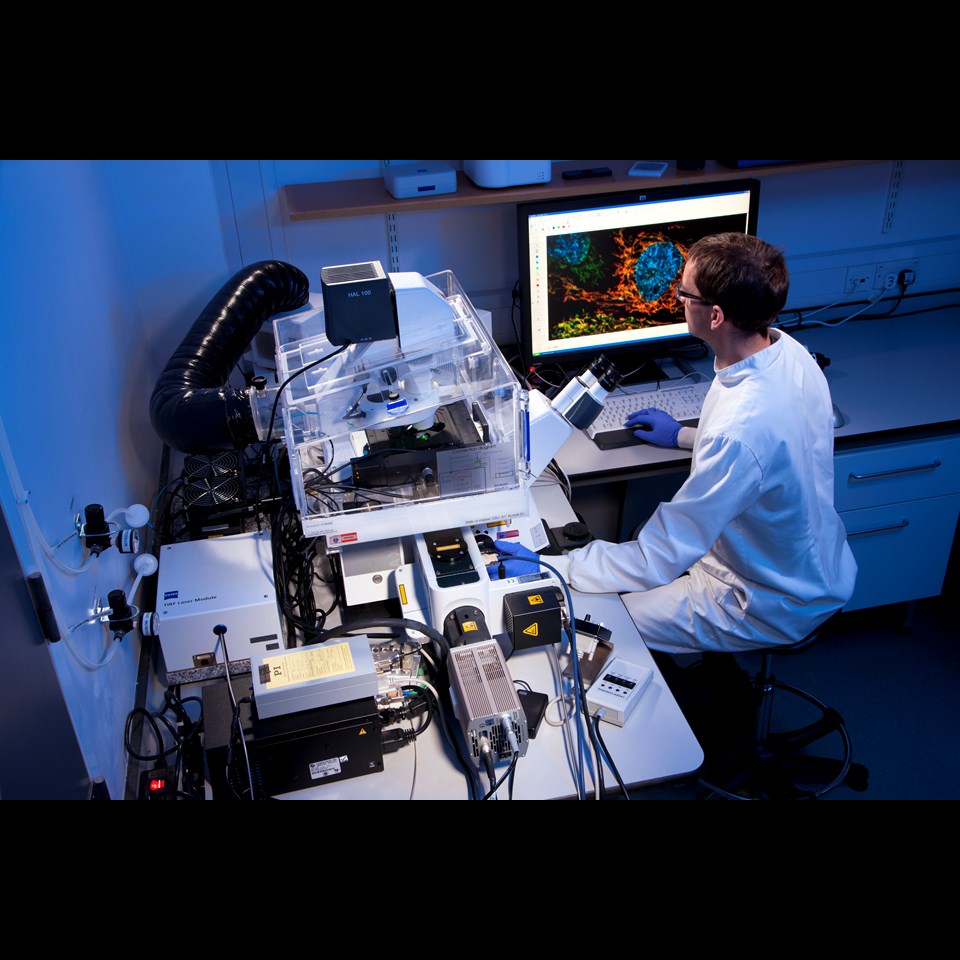International technicians vital for UK science and innovation
04 December 2017
Leading health charities, higher education organisations and science campaign groups today came together to tell government a post-Brexit immigration regime must ensure the UK can continue to recruit highly trained technical staff.
The major intervention from several of the UK’s best-known research funders and education organisations highlights the importance of international technicians in delivering world-leading research and training the UK’s future researcher workforce.

Under existing non-European Economic Area (EEA) immigration rules, many highly qualified technicians are in roles which are not classified as skilled enough to be eligible for working visas. If the same system were applied to EEA nationals post-Brexit, universities and research institutions across the UK could struggle to fill many technical roles with appropriately skilled staff.
The warning from campaigners came in a joint statement issued this morning by the Russell Group, Universities UK, the Universities and Colleges Employers Association, the Wellcome Trust, the Campaign for Science and Engineering, Cancer Research UK, the Science Council and the Institute of Cancer Research.
The full text of the joint statement is as follows:
“In developing a future immigration system, government has an opportunity to review how it can best support the recruitment of people with skills needed in the UK, including technical skills that underpin world-class research and teaching in universities, research institutes and industry.
“Technicians are vital to the success of the UK’s world leading research. They are a highly trained part of the workforce with a diverse range of expertise, providing essential support to research and knowledge transfer. Technicians directly contribute to research outputs - and their subsequent impact - and improve the efficiency of laboratory operations.Many also play a key role in building the UK’s future workforce by teaching and developing the technical skills students require to pursue a future career in research.
“Although most are highly qualified, their skill level, according the current non-EEA immigration system, isn’t always high enough for them to be eligible for a working visa. If the same system were applied to EEA nationals post-Brexit, universities and research institutions across the UK could struggle to fill many technical roles with appropriately skilled staff.
“Government’s commitment to technical education is important to address the skills gap in this area and meet the challenges that come with an aging workforce. Estimates suggest UK industry needs to recruit at least 70,000 new technicians every year to replace those retiring and to fill new positions and demand for STEM technicians is particularly acute. But growing the technical skills pipeline in the UK will take time and we will always need the flexibility to draw on the best technical talent from around the globe. The UK benefits significantly from tapping into new ideas, skills and innovative approaches developed overseas and this is as true in technical skills as it is in research more generally.
“It is crucial that the UK’s immigration system supports recruitment from outside the UK to fill technician-level positions – which are vital to supporting research and education and for training the next generation of technical staff in the UK.”
Commenting, Chief Executive of the Russell Group Dr Tim Bradshaw said:
“Skilled technical staff contribute to teaching and research excellence at Russell Group universities. International technicians are helping to fill a skills gap and are bringing new ideas and techniques to the UK. We need to ensure future immigration rules enable us to continue to recruit these staff.”
Professor Karen Vousden, Cancer Research UK’s Chief Scientist, said:
“Our international technical workforce contribute essential skills and expertise to cancer research across the UK. The Government must design a future immigration system which enables us to attract, recruit and retain global scientific talent at all professional levels.”
Kelly Vere, Higher Education Engagement Manager for the Science Council and lead on the Technician Commitment initiative said:
“Technicians make a vital contribution to teaching and research in the UK. To be a leading place for science and innovation, we need to attract and develop leading technical talent. It’s crucial that the UK’s immigration system recognises this and ensures future reforms support the recruitment of technician roles.”
Alistair Jarvis, Chief Executive of Universities UK, said:
“There are many EEA nationals employed in technical roles that are critical to the academic and research success of universities. These roles require a high-level of education and technical know-how, yet most would not meet the current thresholds to qualify for a work visa.
“Applying the existing visa system for non-EEA nationals to EEA nationals post-Brexit would result in universities being unable to recruit staff who are vital to the day-to-day operations of universities.”
Professor Paul Workman, Chief Executive of the Institute of Cancer Research, London, said:
“Technical scientists are at the heart of the world-leading cancer research that goes on here at the ICR. They make up nearly a quarter of the ICR’s staff, and have been crucial to many of our most exciting discoveries.
“Many of our technical scientists are EU citizens, and it is vital that the Government secures a deal that allows us to continue to recruit these talented people. We already find it difficult to attract staff in certain areas where there are skills shortages, and it would be damaging for us – and for the UK’s competitiveness on the world stage – if further barriers around visa requirements were put in place.”
Dr Sarah Main, Executive Director of the Campaign for Science and Engineering, said:
"The Government's determination that the UK remains open to 'the brightest and the best' must translate into policy that allows us to attract highly skilled technicians to the UK. Therefore care must be taken over criteria such as salary and occupational classification to ensure the UK doesn't score an unintentional own goal."
-
Adam Clarke
adam.clarke@russellgroup.ac.uk
020 3816 1302
 X
X
